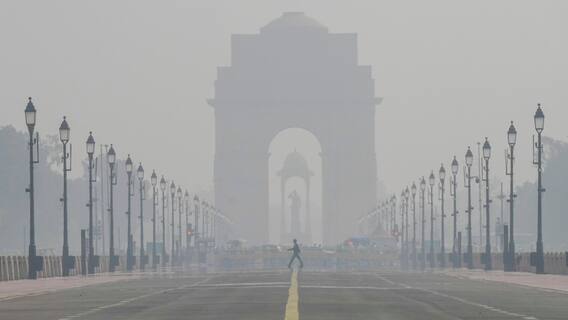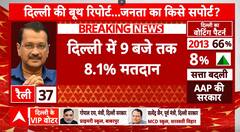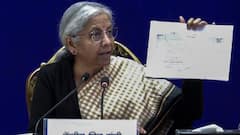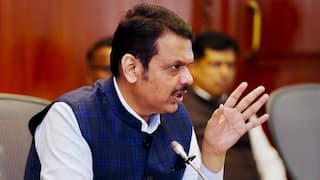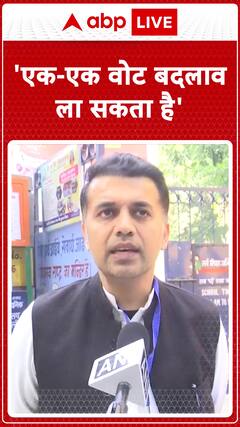Explorer
Budget 2019 & Agriculture Sector: The Road So Far & the Way Ahead!
The Modi Government has infused gigantic allocations to the agricultural sector since 2014. Setting up of e-NAMs, various infrastructure funds, farm credit schemes and irrigation funds have been on government’s top priority, and off late in Budget 2018, the FM proposed to fix minimum 50% MSP on the cost of input. However, despite the government’s commitment to the agriculture sector, the country has witnessed farmers committing suicides besides days-long protests in not just one but various states of India.

The government’s push to improve rural and agriculture infrastructure has paved way for the development of the agriculture and allied industries as a whole.
Development of rural India and upliftment of the agriculture sector had been at the heart of the Bhartiya Janta Party’s last five budgets, yet the ruling BJP lost its ground gravely in the states of Madhya Pradesh, Rajasthan and Chhattisgarh in December 2018 i.e. less than 6 months from General Elections 2019, primarily due to farmers who were wooed by the opposition with agri-loan waivers. Finance Minister Arun Jaitley will be presenting his sixth and last budget of current term on 1st February, next month, and one can expect his budget speech full of schemes and future goals for the agriculture and allied industries.
The Modi Government has infused gigantic allocations to the agricultural sector since 2014. Setting up of e-NAMs, various infrastructure funds, farm credit schemes and irrigation funds have been on government’s top priority, and off late in Budget 2018, the FM proposed to fix minimum 50% MSP on the cost of input. However, despite the government’s commitment to the agriculture sector, the country has witnessed farmers committing suicides besides days-long protests in not just one but various states of India.
The country’s 58% population depends upon agriculture and allied industries to make a living. The total area sown with kharif crops in India reached 105.78 million hectares as of September 2018, while the government has set a target of 285.2 million tonnes food grain production for the crop year 2018-19.
India’s food processing industry is the largest industry in the country and accounts to 32% of total food market. The Indian Food and Grocery market is world’s sixth largest, while the country is second largest fruit producer in the world.
Known for its culinary prowess, India is the largest producer and exporter as well as consumer of spices and spice products in the world. Over the past few years, the country has seen tea and coffee exports at an all time high.
The government’s push to improve rural and agriculture infrastructure has paved way for the development of the agriculture and allied industries as a whole.
Finance Minister Arun Jaitley has time and again stressed that farm loan waivers are not a permanent solution to the issues of farmers, thereby, in Budget 2019 which happens to be his last tryst before the General Elections, it is expected that he will come up with what he considers is the solution to keep the farmers content with their occupation and within the agriculture sector. Experts are of the view that the FM Jaitley may propose interest-free loans to counter the opposition’s farm loan waivers.
On the other hand, there has been a long pending demand from the FM to come up with alternatives like the Rythu Bandhu scheme aka Farmers’ Investment Support Scheme (FISS) sponsored by the Government of Telangana that supports farmer’s investment for two crops a year, for Rabi and Kharif crops both. FISS encourages the rich farmers to give up this subsidy, so that the amount can stay in the corpus for the benefit of economically weaker and marginal farmers.
The centre launched Pradhan Mantri Annadata Aay SanraksHan Abhiyan (PM-AASHA) procurement policy with a corpus of Rs.15,053 Cr in September 2018, as per which, the States have the right to decide compensation scheme to ensure fair prices for the farmers. Furthermore, Pradhan Mantri Krishi Sinchai Yojana (PMKSY) was infused with Rs.50,000 Cr to strengthen the irrigation sources and cover the farmers against droughts. The government also lowered GST on organic pesticides from 18% earlier to 12% now.
The industry also expects the government to further broaden the eNAM aka Electronic National Agriculture Market (eNAM) and bring in more farmers as well as mandis under its cluster.
It is to only wait and watch how FM Jaitley pulls the ropes and tames the tug of war between fiscal consolidation and farmer satisfaction.
Follow Business News on ABP Live for more latest stories and trending topics. Watch breaking news and top headlines online on ABP News LIVE TV
View More
Advertisement
Trending News
Advertisement
Advertisement
Top Headlines
India
Cities
Cities
Cricket
Advertisement


Iryna SorokaThe writer is an Associate Professor at Jindal Institute of Behavioural Sciences.
Opinion







